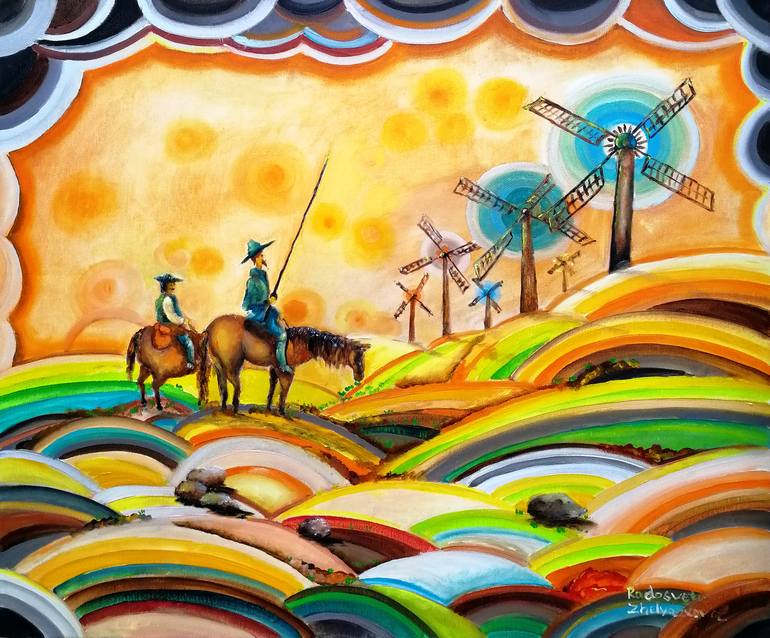
Here are a few excerpts from a book I recently read, "Don Quixote," by Miguel de Cervantes.
In short, he became so absorbed in his books that he spent his nights from sunset to sunrise, and his days from dawn to dark, poring over them; and what with little sleep and much reading his brains got so dry that he lost his wits. His fancy grew full of what he used to read about in his books, enchantments, quarrels, battles, challenges, wounds, wooings, loves, agonies, and all sorts of impossible nonsense; and it so possessed his mind that the whole fabric of invention and fancy he read of was true, that to him no history in the world had more reality in it.
So then, his armour being furbished, his morion turned into a helmet, his hack christened, and he himself confirmed, he came to the conclusion that nothing more was needed now but to look out for a lady to be in love with; for a knight-errant without love was like a tree without leaves or fruit, or a body without a soul.
So he went on stringing together these and other absurdities, all in the style of those his books had taught him, imitating their language as well as he could; and all the while he rode so slowly and the sun mounted so rapidly and with such fervour that it was enough to melt his brains if he had any. Nearly all day he travelled without anything remarkable happening to him, at which he was in despair, for he was anxious to encounter someone at once upon whom to try the might of his strong arm.
Meanwhile Don Quixote worked upon a farm labourer, a neighbour of his, an honest man (if indeed that title can be given to him who is poor), but with very little wit in his pate. In a word, he so talked him over, and with such persuasions and promises, that the poor clown made up his mind to sally forth with him and serve him as esquire. Don Quixote, among other things, told him he ought to be ready to go with him gladly, because any moment an adventure might occur that might win an island in the twinkling of an eye and leave him governor of it. On these and the like promises Sancho Panza (for so the labourer was called) left wife and children, and engaged himself as esquire to his neighbour.
At this point they came in sight of thirty or forty windmills that there are on that plain, and as soon as Don Quixote saw them he said to his squire, “Fortune is arranging matters for us better than we could have shaped our desires ourselves, for look there, friend Sancho Panza, where thirty or more monstrous giants present themselves, all of whom I mean to engage in battle and slay, and with whose spoils we shall begin to make our fortunes; for this is righteous warfare, and it is God’s good service to sweep so evil a breed from off the face of the earth.”
“What giants?” said Sancho Panza.
"Those thou seest there,”answered his master, “with the long arms, and some have them nearly two leagues long.”
“Look, your worship,”said Sancho; “what we see there are not giants but windmills, and what seem to be their arms are the sails that turned by the wind make the millstone go.”
“It is easy to see,”replied Don Quixote, “that thou art not used to this business of adventures; those are giants; and if thou art afraid, away with thee out of this and betake thyself to prayer while I engage them in fierce and unequal combat.”
When the author of this great history comes to relate what is set down in this chapter he says he would have preferred to pass it over in silence, fearing it would not be believed, because here Don Quixote’s madness reaches the confines of the greatest that can be conceived, and even goes a couple of bowshots beyond the greatest.


No comments:
Post a Comment